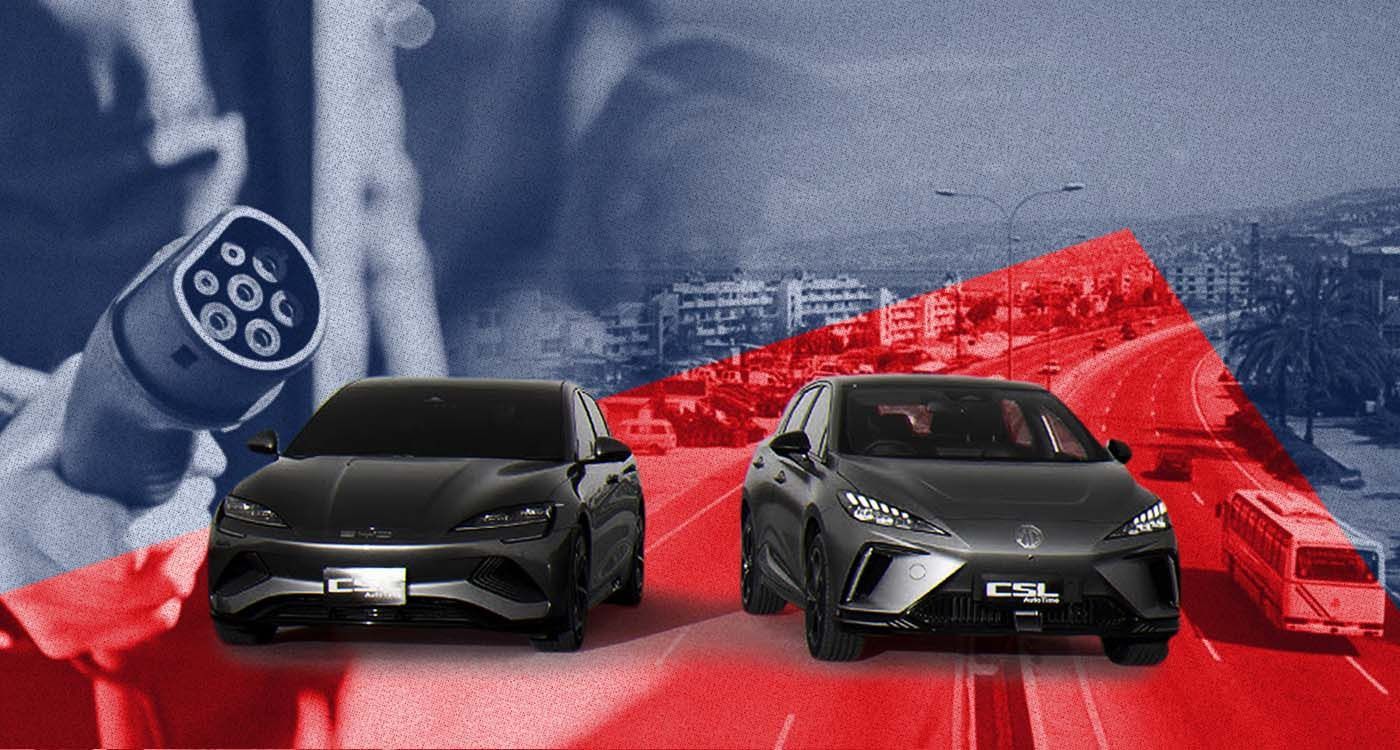
On Lebanon’s deteriorating roads, horns incessantly blare. Yet, a quiet shift is underway: electric vehicles are on the rise. Sleek Chinese models—Zeekr, XPENG, Voyah—glide between aging Range Rovers and dented taxis, symbols of modernity in a state mired in crisis. But in the land of diesel generators, the green car is still looking for a place to plug in.
It’s a quietly growing trend. Since Lebanon’s 2021 fuel crisis, the electric vehicle market has been steadily gaining ground. Chinese electric vehicles (EVs), in particular, are spearheading the shift. Their futuristic designs are increasingly becoming common sights on Lebanon’s roads.
The numbers are still small but rising. In the absence of official data, BlomInvest Bank reports 29 electric vehicles sold in December 2024. Though still modest, the market keeps expanding. For example, Chinese automaker BYD claims to sell around 20 vehicles each month in Lebanon.
Electric vehicle purchases in Lebanon benefit from significant tax incentives. Since 2018, the government has implemented support measures for EV imports, which were reaffirmed in the 2024 Finance Law. These include full exemptions from customs duties on imported electric vehicles and a 70% reduction in registration fees.
These incentives make already competitively priced Chinese electric brands even more accessible to Lebanese consumers.
At the launch of Zeekr in Lebanon in July 2024, Farid Homsi, General Manager of Impex, Zeekr’s distributor, stated at the brand’s official launch in Lebanon, “This partnership marks a major milestone for the local market, reflecting our commitment to sustainability and cutting-edge technology.”
In addition to favorable tax incentives, these vehicles feature sleek designs and come well-equipped as standard, offering competitive driving ranges.
Models available in Lebanon typically offer between 400 and 600 kilometers of range. However, real-world conditions, especially Lebanon’s hilly terrain, can reduce this by 15 to 20%.
Compared to pricier European brands, Chinese models appeal to buyers seeking affordable, modern vehicles adapted to the country’s specific challenges.
This shift marks a subtle yet decisive transformation in Lebanon’s automotive landscape.
The question arises: Why invest in a European SUV when Chinese brands offer better value for money?
An increasing number of young professionals and urban Lebanese families are drawn to these electric vehicles. According to BYD, their customer base spans all segments of society, “Our clients come from all walks of life and age groups. We serve both business leaders and employees.”
Although fuel prices remain significantly lower than in Europe, the overall cost of owning and operating a combustion-engine vehicle can weigh heavily on Lebanese households, many of which own multiple cars.
Electric vehicles promise to reduce running costs—at least in theory.
An Electric Car Without a Charging Network?
The dream of electric car ownership collides with the stark reality of insufficient charging infrastructure. Although no official government data exists, available charging points remain scarce.
Chargemap, a platform tracking electric vehicle chargers, lists only about a dozen stations across Lebanon. Meanwhile, the EV Zone program, which pledged 150 charging points by 2024, has just deployed around 15 so far.
Private initiatives are stepping in to fill the gap, with chargers installed in shopping mall and supermarket parking lots. Medco has also equipped several of its fuel stations with charging points.
Despite rapid market growth, charging infrastructure remains woefully inadequate. Vehicle owners are forced to seek alternatives—using generators, installing solar panels or even rigging makeshift electrical outlets.
In a country where public electricity is scarce, the resulting bills quickly become burdensome.
For Georges, a student and driver, the struggle is real, “I had a charging system installed at home, included in the price of the car. There are no charging stations near my university, and I can’t leave my car several kilometers away all day. Since then, my electricity bill has significantly risen.”
BYD provides and installs a free charging system with each vehicle purchase, capable of supporting up to 8 amps.
A Market Still Uncertain
Maintenance remains a major challenge. While Chinese electric vehicles offer many benefits, the secondary market is still underdeveloped. Reliable resale values are scarce, and spare parts are often hard to find.
More importantly, few mechanics are trained to service these sophisticated models. The technologies are often complex and proprietary. Without a structured service network, owners must directly rely on importers, undermining consumer confidence in this emerging market.
For Fady, a family man and Chinese EV owner, maintenance is a challenging task, “I can’t just take my car to any garage. Mechanics don’t know how to work on it. I always have to go back to my supplier.”
Nevertheless, Chinese EVs have features tailored to Lebanon’s unique challenges. According to Impex, some models offer regenerative braking that can recharge up to 30% of the battery on downhill stretches—perfectly suited for the country’s mountainous terrain.
Yet, technology alone cannot compensate for the absence of a clear vision. Electric vehicles in Lebanon remain primarily a private initiative, a personal choice in a country without a sustainable mobility strategy. It’s a revolution unfolding in the absence of public policy.
Chinese electric cars may have found their market, but not yet their country.



Comments